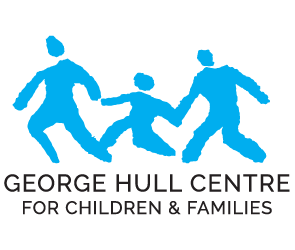Contact Us 416-622-8833
From Trauma Informed to Trauma Responsive in Complex Children’s Mental Health Cases
Join us in this 4 part series, where we will take a complex case study from intake to closing. From working with the individual, the family, the systems, all while taking care of yourself, we will use real complex case examples to teach you the theory and practice the concepts. Experts from different disciplines including Psychiatry, Intensive Services (Live-In and Day Treatment programs), and Education will help us explore how to work with individuals, families, and systems.
Cost: $99 (+ non-refundable Eventbrite ticket fee)
****SESSION RECORDINGS WILL BE AVAILABLE SHORTLY AFTER REGISTRATION****
Sessions
The Importance of Trauma Informed Care
Let’s understand what happens to the nervous system and brain in the face of sustained danger and life threat. We will introduce you to 16 year old Jackson and his family. Using what we understand about how trauma impacts all aspects of development, we will get a sense of how his and his family’s life has been shaped by relational trauma. We will take you through the steps to screen and assess trauma and its impacts and arrive at formulations and treatment plans that are trauma responsive. In this first class, we will be focusing on Jackson’s individual needs and how we understand and respond to his symptoms. we will also explore how Jackson’s symptoms are impacting his family members. In subsequent sessions we will be focusing on how to respond to families and systems. Video taped examples will be shown.
Supporting Families
During this class we will discuss how to support families of complex clients. How do we understand what is happening for the parent/s? How can we work with the family to begin to heal past hurt? Returning to our case study, we will work with Jackson’s mom to understand and resolve her shame and experiences of loss. We will help her understand and tolerate her son’s anger and repair the damage to their relationship. As the trust in the relationship develops, we will discuss how to invite her into parenting from an attachment perspective where she can provide both limits and nurturing in a way that helps Jackson feel safer. Video taped examples will be shown.
Supporting Systems
In this class, we discuss the need for interdisciplinary approaches and how to navigate systems that may not have a trauma informed lens. We will focus on how we might help others adopt a more trauma informed perspective through collaboration and support. (Focusing on how we create trauma informed spaces and support other service providers to respond in a trauma sensitive way). In our case study, it becomes apparent that Jackson needs psychiatric care and may require a period of live in care. We speak to a psychiatrist, a clinician with extensive experience working with youth in live in care, and a principal to provide wrap around services.
Supporting Yourself and Your Colleagues
In this culminating class, we discuss the impact on clinicians of working with complex individuals and families. We will revisit the concepts of compassion fatigue, vicarious trauma and moral injury, and how our empathy and ability to think flexibly can become blocked. We’ll explore ways to take care of yourself so you can continue to care for others. Using our case study, we will look at points at which the work becomes hard and how you might be able to help yourself.
We will bring the case to a close, incorporating all the elements we have discussed in the sessions.
Participants will have access to recordings of sessions for a limited time.
Speakers & Facilitators

Dr. Sian Phillips, PhD, CPsych is a psychologist who consults for the George Hull Centre Institute of Childhood Trauma & Attachment. In addition she is a DDP Trainer and has a private practice. Sian specializes in the assessment treatment of children who have experienced developmental trauma and the families that look after them.

Kristin Gionfriddo, MSW, RSW, is a social worker who works for the George Hull Centre Institute of Childhood Trauma & Attachment as well as the George Hull Centre Community Clinic. Kristin has also been a part-time professor at Humber College in the post graduate addictions and mental health program since 2017. Kristin is completing her DDP practicum and integrates her DDP skills with her DBT and TF-CBT training.

Karen Mighty SSW, is a Program Manager at the George Hull Center’s Intensive Live-In treatment Program for adolescent girls and has over 20 years experience in providing services to complex clients. She has particular interest and knowledge in racial trauma and oppression and advocating to reduce barriers to service.
Karen has taught Social Service Worker and Child and Youth Counsellor courses at Sheridan College.
Dr. Upasana Krishnadev MD, FRCP(C), RYT-500 is a Child & Adolescent Psychiatrist and Certified Yoga Teacher practicing in the Community Clinic at The George Hull Centre for Families and consulting in the Telelink Mental Health Program at the Hospital for Sick Children. In addition to her urban practice, Dr. Krishnadev works with rural and remote communities, with an interest in trauma, racialized experience, and Indigeneity. She has a focused clinical interest in Infant and Preschool Mental Health, providing assessment and treatment to families with very young children, aged 0-6, using multiple psychotherapeutic modalities. In her teaching role through the University of Toronto, Dr. Krishnadev supervises trainees in the psychotherapies, including in individual, family and group therapy. Interested in expanding the use of mind-body approaches in mental health care, Dr. Krishnadev is involved in the development and implementation of mindfulness and yoga-based therapeutic programs for children, youth and families.
Dr. Greg Lodenquai, MD, FRCP(C) is a child and adolescent psychiatrist and the Psychiatrist in Chief at the George Hull Centre. He represents the Centre on a number of committees at the University of Toronto, Department of Psychiatry and is one of the co-chairs of CAMH’s Project ECHO Mental Health program. He also participates in Project ECHO’s Developmental Trauma and Resilience program.
Michael Blackburn is a Principal with the Limestone District School Board in Kingston, Ontario. His current role is focused on District support for students with special education needs.
Michael has been a teacher and school administrator for 20 years and believes in the potential of every child. He has had the privilege of working alongside many staff, students and families in marginalized communities who have been impacted by poverty and adverse childhood experiences and he has supported schools and systems to embed trauma informed practices in their daily work.
Frequently Asked Questions
The link will be emailed to you after you register.
We are pleased to offer the highly subsidized rate of $199 for all four sessions. No additional subsidies are available.
The George Hull Centre Institute of Childhood Trauma and Attachment is pleased to offer delegates a certificate of participation for the training.
No. The classes are sequential and build upon one another. All classes will be recorded so if you miss a class you can watch it online and catch up.
More Questions? Please email Lucy Yazar

